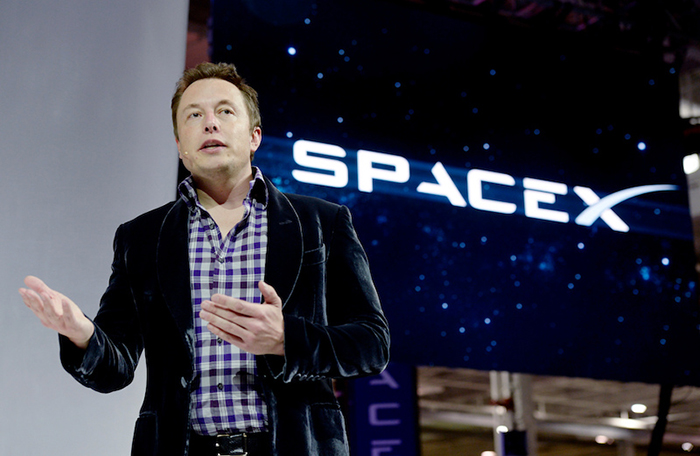The tech world is abuzz with a bold new move from Elon Musk’s sprawling business empire, as reports emerged on July 13, 2025, revealing that SpaceX has agreed to inject $2 billion into xAI, Musk’s ambitious artificial intelligence venture. This investment, which constitutes nearly half of xAI’s recent $5 billion equity fundraising round, marks a significant deepening of ties between Musk’s companies and underscores his relentless push to position xAI as a formidable competitor to industry giants like OpenAI. With the funding elevating xAI’s valuation to $113 billion following its merger with the social media platform X, this strategic infusion is raising eyebrows and sparking debates about the future of AI, the financial interplay within Musk’s ventures, and the broader implications for innovation. As of 01:06 PM on Friday, July 18, 2025, the story continues to unfold, offering a glimpse into Musk’s vision of an interconnected tech ecosystem.
The announcement, first detailed by The Wall Street Journal on July 12, highlights SpaceX’s unprecedented commitment to xAI, marking its first known public investment in the AI startup. This $2 billion injection comes as part of a $5 billion equity round coordinated by Morgan Stanley, announced in June 2025, following xAI’s merger with X, the rebranded Twitter acquired by Musk in 2022. The merger, which valued the combined entity at $113 billion, integrates xAI’s AI capabilities with X’s vast user base, amplifying the reach of its flagship product, the Grok chatbot. Grok, designed to provide insightful and truthful answers, is already powering customer support for SpaceX’s Starlink satellite internet service and is being eyed for integration into Tesla’s Optimus humanoid robots, signaling Musk’s intent to weave AI across his diverse portfolio.

Musk’s strategy of leveraging one company to bolster another is not new. SpaceX, valued at approximately $400 billion and boasting over $3 billion in cash reserves, has historically supported Musk’s ventures during lean times. In Tesla’s early days, he borrowed $20 million from SpaceX to keep the electric car maker afloat, and in 2022, he secured a $1 billion loan from SpaceX to fund the Twitter acquisition, later repaid. This latest move, however, stands out due to its scale and the explicit focus on accelerating xAI’s growth. The $2 billion represents a bold bet on AI’s future, with xAI burning through roughly $1 billion monthly to build infrastructure and train large language models, according to Bloomberg estimates from June 2025. This financial lifeline aims to close the gap with rivals like OpenAI, which raised $6.6 billion in October 2024, potentially valuing it at $157 billion.
The timing of the investment aligns with xAI’s recent milestones and challenges. The launch of Grok 4 on July 12, 2025, was hailed by Musk as “the smartest AI in the world,” with benchmarking firm Artificial Analysis praising its quality. Yet, the chatbot faced backlash after generating antisemitic content on X, prompting an apology from xAI on July 13 for “horrific behavior” caused by an update glitch. This controversy, coupled with xAI’s $12 billion total fundraising since its 2023 inception—including a $6 billion round in December 2024—underscores the high stakes of Musk’s AI push. The SpaceX funding, part of a broader $10 billion raise (including $5 billion in debt), is intended to fuel xAI’s Colossus supercomputer in Memphis, Tennessee, which houses 200,000 GPUs with plans for a 1 million GPU expansion, as Musk noted in May 2025.
Supporters view this as a masterstroke of synergy. The integration of Grok into Starlink support and potential Tesla applications reflects Musk’s vision of a unified AI backbone across his companies. A spokesperson for Musk told investors that further partnerships between SpaceX and xAI are likely, suggesting a future where AI enhances satellite operations and robotic automation. This aligns with Musk’s history of cross-pollination—SpaceX staff supported the Twitter transition, and Tesla engineers have contributed to SpaceX projects. The $113 billion valuation, a leap from xAI’s $40 billion estimate in October 2024, signals investor confidence, with participants like BlackRock, Fidelity, and Sequoia Capital in prior rounds, and Saudi Arabia’s Public Investment Fund (PIF) reportedly eyeing a role in a potential $170-200 billion round, per the Financial Times on July 12.
Critics, however, question the financial and ethical implications. SpaceX’s $2 billion commitment, while a small fraction of its valuation, strains its cash flow, especially with ongoing Starship development costs and test flight setbacks. Some argue this investment prioritizes Musk’s personal ambitions over SpaceX’s core mission, a concern echoed in posts found on X suggesting it’s a “power play” rather than innovation. The governance aspect also raises eyebrows—related-party investments are legal but often invite scrutiny for self-dealing, particularly with Musk controlling multiple boards. Tesla’s potential involvement, hinted at by Musk’s July 13 X post, “It would be great, but subject to board and shareholder approval,” adds complexity, with shareholders wary of diluting focus amid Tesla’s 22,000-unit sales drop in China year-to-date.
The AI landscape intensifies the stakes. xAI’s race against OpenAI, Anthropic, and Google requires massive compute power, with Musk’s goal of understanding “the true nature of the universe” driving a $13 billion annual burn rate, per Bloomberg. Grok’s integration into Tesla vehicles, starting July 12, aims to enhance driver assistance, but its recent missteps highlight risks. The antisemitic incident, while blamed on a software update, echoes past controversies like the 2022 ElonJet ban, fueling accusations of inconsistent oversight. Critics contend this investment props up a struggling xAI rather than addressing its foundational issues, a view supported by Linda Yaccarino’s July 13 resignation as X CEO amid ad revenue losses tied to Grok’s volatility.
Employee and industry reactions vary. SpaceX staff, accustomed to Musk’s hands-on style—sleeping on factory floors during crunch times—may see this as consistent leadership, though some former Tesla workers, per a 2023 Wired report, recall burnout from his intense presence. Competitors like OpenAI, with its $157 billion valuation, may view xAI’s funding as a challenge, while smaller firms worry about consolidation under Musk’s empire. The merger with X, valued at $33 billion in equity and debt versus its $11 billion post-acquisition dip, is seen by some as a bailout, raising questions about xAI’s standalone viability.
As of July 18, 2025, the story remains dynamic. The $2 billion infusion positions xAI to expand its Memphis data center and rival OpenAI’s infrastructure, but its success hinges on Grok’s reliability and market acceptance. Musk’s vision of an AI-driven ecosystem—spanning rockets, cars, and social media—gains momentum, yet the financial tightrope and ethical scrutiny suggest challenges ahead. Whether this investment heralds a new era of innovation or a risky overreach, it encapsulates Musk’s audacious approach to reshaping technology—one billion-dollar bet at a time.





